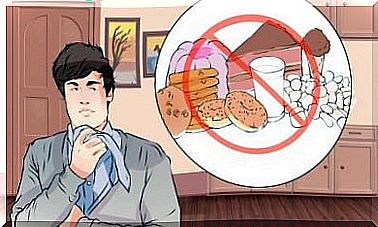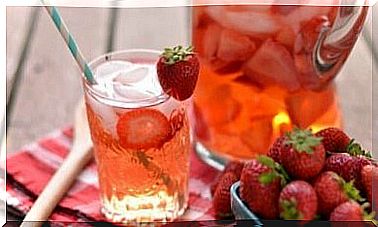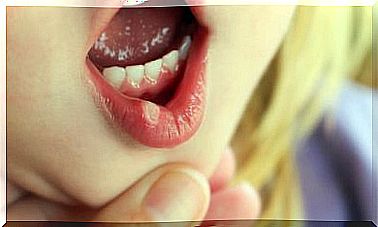Diet Against Depression?
Overcoming depression can become easier with a good diet

It’s hard to get out of depression. Diet for depression can be supportive. Above all, it can also help you prevent a depressive mood from developing into full-blown depression.
Then learn more about nutrition for depression.
Diet against Depression
Regardless of whether you suffer from depression or the lighter variant, the depressive mood: sometimes malnutrition or malnutrition is partly responsible. Because there are nutrients that help with depression to get out of the deep. We’ll show you what they are and what foods they are in.
To prevent depression or to help you get out of depression, a diet high in the following substances is highly advisable. As a preventive measure, you should eat a balanced diet, diets are absolutely taboo during this dark phase of your life!
Basically, depression always belongs in the hands of professionals who can help you. Accept the help!

magnesium
Classically, we only know the mineral for the prevention of muscle cramps, but it is not only important for the muscles!
Magnesium acts on the synapses of the nerve cells in a similar way to other prescription antidepressants and is in many cases even recommended by doctors as supportive treatment for depressive moods.
Even those who are under stress have an increased need for magnesium. Some birth control pills also have the side effect of increasing your magnesium requirement, but unfortunately not many people know that. So there are many reasons for magnesium deficiency, not just exercise!
So make sure to eat plenty of foods that are high in magnesium. These are, for example, nuts and whole grain products. A muesli made from oat flakes with nuts, for example, provides a good portion of magnesium at breakfast.

potassium
Potassium is a particularly important substance for you and your body because you can only ingest it with food and it cannot be produced by the body itself.
You need this mineral for the correct transmission of stimuli in the muscles (muscle cramps also occur with a potassium deficiency, not just with a magnesium deficiency!), It is important for optimal stimulation of the heart and can thus prevent cardiac arrhythmias.
Potassium also regulates cell growth, blood pressure and the acid-base balance, influences the release of certain hormones (e.g. insulin) and is important for carbohydrate utilization and protein synthesis.
Increasing potassium intake can therefore lower blood pressure. The correct interaction of all nerve synapses is also controlled by potassium and is suspected of exacerbating or triggering depression in the event of a deficiency through incorrect transmission of stimuli.
Fresh fruits and vegetables such as pumpkins, melons and cucumbers contain a particularly high amount of potassium.

Complex carbohydrates
Make sure you eat whole grains whenever possible. Grain products contain many complex carbohydrates from which your body can produce the happiness hormone serotonin itself. So provide your body with enough “serotonin building blocks”!
Whole grain products also contain magnesium, which you should also pay attention to with regard to depression. There are so many reasons to choose whole grains!

Omega 3 fatty acids
A deficiency in essential fatty acids leads to various deficiency symptoms.
Well-known essential fatty acids are “Omega3” and “Omega6”, which should literally be “on everyone’s lips” due to advertising: The “healthy Omega3” is contained in all vegetable oils and improves the flow properties of the blood.
It also lowers blood pressure and lipids, which is why it can prevent hardening of the arteries. However, it is not only the intake of such essential fatty acids through our food that is decisive, but also that the ratio of these fatty acids to one another is optimal. The higher the proportion of omega3 fatty acids and the lower the proportion of omega6 fatty acids, the more optimal the oil.
The highly praised by good marketing “healthy oil” comes here with 1:11 surprisingly poor away: E s has an unfavorable ratio of these two fatty acids. There is a lot of omega3 in fish (the cooler the water, the fatter the fish, the richer in omega3) and in domestic oils such as rapeseed oil, soybean oil, walnut oil and flaxseed.

Depression due to disturbed intestinal flora?
In animal experiments it was found that the intestinal flora can even influence moods. To what extent this can be transferred to humans is not yet entirely clear.
However, the first results strongly suggest that a disturbed intestinal flora can also lead to depression in humans, for example.
Lactic acid bacteria support a healthy intestinal flora. You don’t have to buy the expensive probiotic dairy products that are advertised as health-promoting.
A varied supply of these bacteria from different sources is just as good and is much cheaper: Natural yoghurt of various yoghurt bacteria (“mild” or “Greek”, …), kefir, but also sauerkraut and kimchi (white cabbage, spicy and sour fermented) contain lactic acid bacteria !
As you can see, dieting for depression can improve your mood. It is therefore an important supportive measure, but other strategies are often very important to get out of this dark phase!









